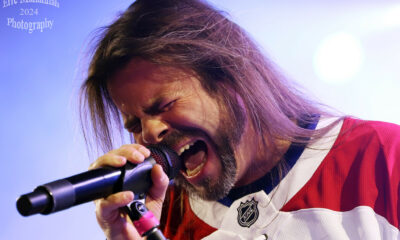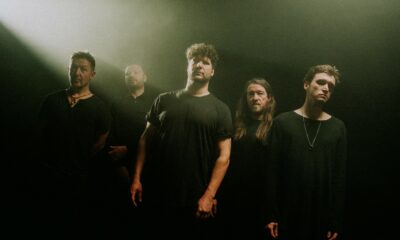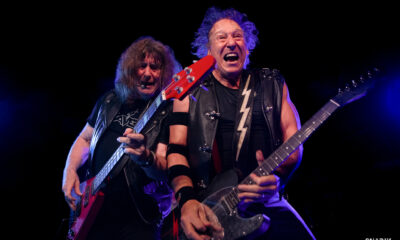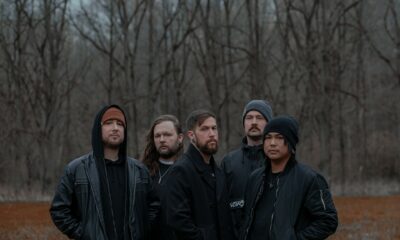Interviews
Never Say Die: ANGEL WITCH’s Kevin Heybourne Discusses ‘Seventies Tapes’, Demos, and the Grenfell Tower Fire
Angel Witch recently issued Seventies Tapes and in celebration thereof have a one-off Toronto show on May 16th! We caught up with guitarist/vocalist Kevin Heybourne to talk demos, metal, and much more.
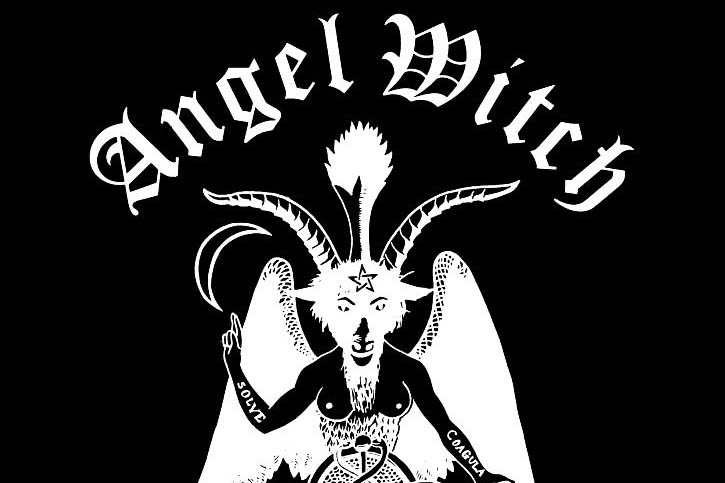
After an initial stint as Lucifer from 1976-78, Angel Witch was born in 1978 and quickly emerged on the original New Wave of British Heavy Metal scene with a series of demos and singles which lead up to their now-classic self-titled debut in 1980. It’s been a tough slog for the London-based bangers that has seen multiple periods of inactivity and releases existing along all segments of the quality continuum. The last few years have been the kindest to Angel Witch: original member, guitarist/vocalist Kevin Heybourne has surrounded himself with dedicated players, the band’s last full-length, 2012’s As Above, So Below was a solid return to form, and their live schedule has been busier now than at any point in the band’s history.
In keeping with heavy metal’s often pathological fetishization of the past, Angel Witch has smartly and most recently issued Seventies Tapes, a collection of demo recordings captured in various non-studio settings during the late ‘70s. In celebration of this release, and the band’s upcoming one-off Toronto show on May 16th – their first ever appearance on Canadian soil (tickets right here, yo) – we caught up with Kevin Heybourne to yak about matching the masters, primitive recording processes, and the furtive drinking habits of the old guard.
What was the impetus for the release of Seventies Tapes?
Kevin Heybourne: They have been released in one form or another in the past, there was a release called Sinister History on a couple of small labels about fifteen years back and they also got added to the official 30th anniversary edition of the debut album back in 2010. We just thought that, at some point, we should do something ourselves with them rather than handing them over to other people all the time. Then, when I was back at my parents’ house a couple of years back, I found the tapes!
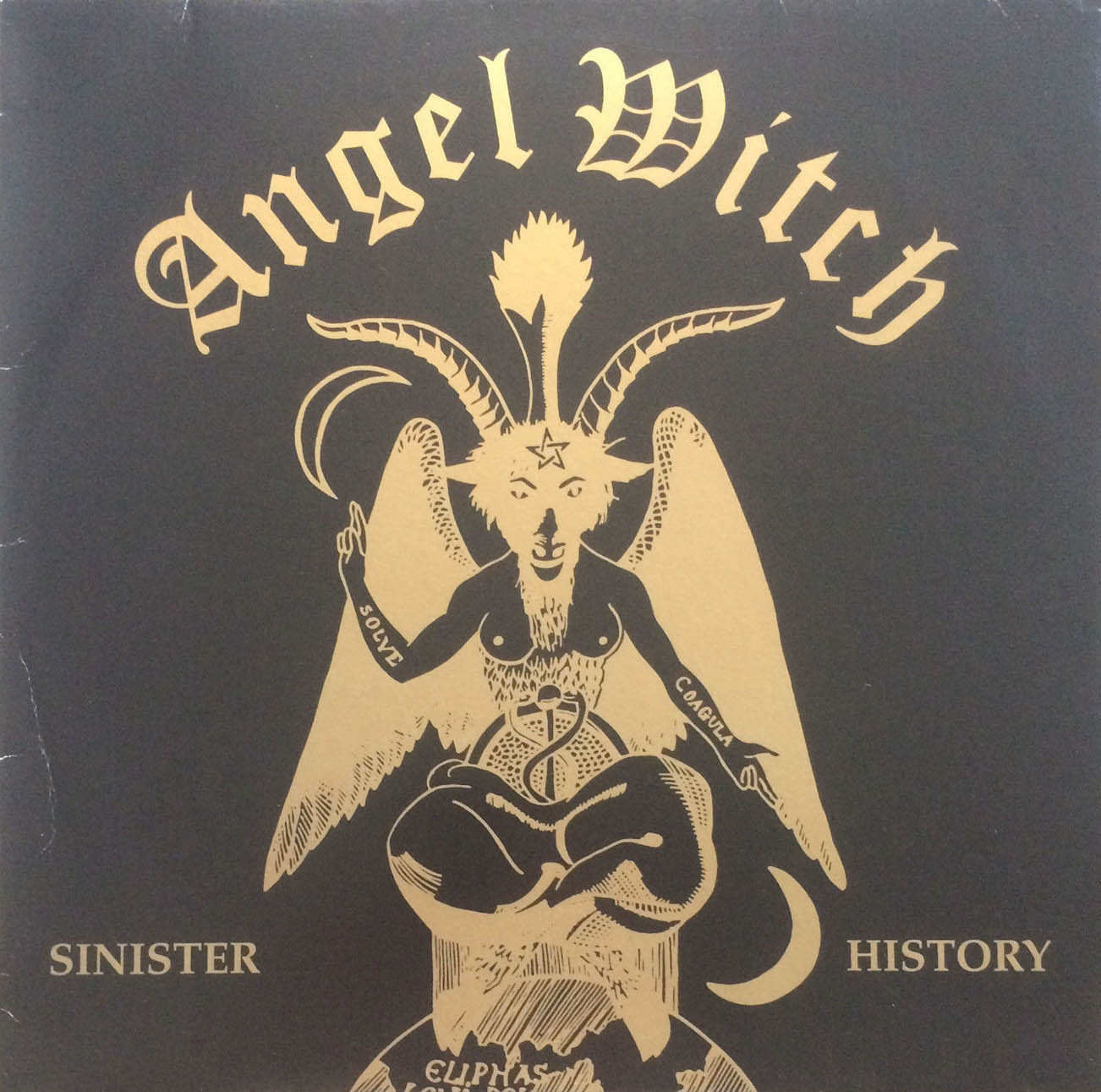
What condition were they in and was there any amount of studio magic that had to be done in order to make them playable and worthy of reproduction and sale?
Heybourne: They were just cassettes, not reels or whatever, sitting in a box at my folks’ place. The versions which had been digitised in the early 2000’s sounded like shit; y’know, a straight-into-the-PC sort of thing through some “mastering” plug in. There was a lot of that stuff happening in those days, a lot of low quality audio from home mastering getting released by everyone. We all thought it sounded OK at the time, but you look back and it’s like “fucking hell!” It makes you cringe. Things have changed now, in terms of what you can do to make old tapes sound better, so we just gave them to a mastering guy we know and he made them sound pretty good, actually! I don’t think there was any real “magic” or audio restoration which needed to happen though. It wasn’t like we had to bake old master tapes or anything. Once the mastering job was done, we were just sitting on some WAV files with an idea that we’d do something with them at some point, but we had no real plan.
Were those early songs written exclusively by yourself? What do you recall about the writing of them?
Heybourne: Yes, I wrote them, sitting in my bedroom! Hours, and hours, and hours of writing. Outside of that, I had no life for a few years. Each time I finished a song, I remember thinking, “Next time I’ll try to write a better one.” See, I was into Sabbath, ‘70s Priest and listening to 2112 and early Heart. How can you write anything of your own, and think you’ve cracked it, when this is the stuff you’re putting yourself up against? Especially when you are 17-18 years old, as I was at the time. Wanting to be as good as, literally, the masters of the genre, and also create new take on it, to put your own stamp on it. Christ…Hard work, man!
What do you remember about the original recording of these particular tracks/demos at the time? Your Bandcamp page mentions something about them being done in various locations. What can you tell us about these varying locations and such?
Heybourne: The ‘78 demo was recorded in the front room of a house in Bromley on an 8-track reel to reel by a guy called Carl Anthony and the ‘79 demo was recorded in two places. The drums were done in the basement of a grocery shop in Anerley, which our lighting engineer’s dad owned – we had to empty out all the stock before we could set up! The rest was done in a loft of a flat in a place called Shirley, produced by Chris Rogers, the same guy who did the version of “Baphomet” which is on the Metal for Muthas compilation. These were very primitive recording conditions as it was for all our contemporaries back then. The idea of going to a real studio was a bit of a pipe dream. You didn’t do that until you had a record deal.
Listen to the entire Seventies Tapes collection here.
At what stage of the development were you at? By that I mean, how close do you remember being what you heard in your head as Angel Witch versus the reality of how the band sounded?
Heybourne: We were still very much in the development stage as a band; it was pretty raw and pretty wild, sometimes in a good way, but sometimes it was a mess! In my head, I wanted it to sound as good as all the original masters I was influenced by, certainly in terms of proficiency. But I did like the fact that we were faster, and rougher, and younger, I suppose? I didn’t want it to become all slick, you know? But I think that we all knew the demos were just sketches of how those tracks should end up sounding and that we hadn’t got there yet.
As it turned out, our debut album did end up being a lot more polished and I do think it sanitised our sound a little too much. We lost that power trio vibe, especially with the drums. Looking back, I feel that [original drummer] Dave [Hogg] was over-reaching in a lot of his playing on these early tapes, but you could hear the ideas he was trying to get across in his fills and licks. Maybe they weren’t hitting the mark, but there was a vibe. When we did the album, the producer’s cure for that was to just make him play everything straight and take all the tricky bits out. Looking back, I think, if he had worked on the drums longer and let him put more of himself into the parts, we would have had a heavier base to work on with the rest of the music.
Of course, that would have eaten into the time we had to spend tracking a hundred fucking vocal and guitar harmonies – which we’d never be able to replicate live – but that would have been just fine with me! And fine with the other guys in the band, as well! We’ve fallen in and out with each other over the years, but I think I can say – hand on heart – we all agree on this one point. There probably a few more, actually, but we’ll cross that bridge when we come to it.
What do you remember about how the demos were reacted to back in the day by fans, friends and industry types?
Heybourne: Essentially, the tapes were ONLY meant to be for industry types. This was the time when a demo was a “demo,” short for “demonstration tape” to get yourself a deal, or gigs, etc. A few years later, with the emergence of the thrash underground, demos became things in their own right a lot more. The fans who heard them loved them, of course, and our friends said they were great – but, then, they always will, won’t they? Best not to listen to them or you might start to believe it! And we did end up getting a deal, so I think they served their purpose, all told.

When you listen(ed) back to the demos, what do you hear and what memories were spurred by the sounds and songs?
Heybourne: It’s a mixture of emotions. Obviously, the songs and playing became so much more refined as time went on, so there is an element of horror in hearing all the mistakes. But we were really young and blasting loud amp set-ups in the middle of people’s fucking houses trying to record this stuff. It was exciting. It felt like the start of something.
Does the demand for these today surprise or shock you in any way?
Heybourne: Not too much, actually. But that’s not to say I’m not flattered and grateful for it. There have always been people wanting to do little limited runs of this stuff here and there, or the major who owns the first album trying to use it to bulk out a CD re-press so they can get money for old rope. There is a small, but rabid, fan-base for this era of heavy rock and they lap it up. Also, in recent years, there are so many kids turning up at our shows; actual rooms full of eighteen year olds with long hair and leather jackets who never would even have had a chance to hear it before.
When you look at the number of bands from the original waves of the NWOBHM that are still around and getting back together, what are your thoughts? How much of a back stage reunion are the shows Angel Witch play these days?
Heybourne: We’ll see the original guys when we play in London in May I’d imagine. [Original bassist] Kevin [Riddles] has been coming along to the gigs for probably ten years now and he has Tytan back together and we see each other at festivals here and there. Hogg came to see us the last time we headlined in London and I would imagine we’ll be getting the guest list text messages when this next show comes around. So much so, that we have actually put some tickets aside for them!
We cross paths with the other bands from that era who are still going, of course. We’ll have a pint in Italy with Praying Mantis or whatever. [ Diamond Head guitarist] Brian Tatler or [Venom guitarist] Mantas will pop their heads the dressing room or grab a bottle from our fridge. It’s cool. We’re not twenty year old boys eyeing each other with ego-driven suspicion anymore.
Check out a stream of Angel Witch’s single “Dead Sea Scrolls” here.
The proceeds from the initial release of Seventies Tapes were donated to the victims of the Grenfell Tower fire in June of last year. Was there a particular personal connection to that incident that had you doing this?
Heybourne: Well, like I said, we had these mastered WAV files sitting there doing nothing and we just woke up to the news and thought we should help. It’s not like Grenfell was part of our local community, but myself and [bassist] Will [Palmer] are both Londoners and [rhythm guitarist] Jimmy [Martin] has lived here for eighteen years. It just felt so close and was so horrific. Also, we’d been discussing the social housing situation in the UK quite a lot when we were on the road and how a really bad situation was developing.
The amount of times we sat there and predicted this exact event, and when we saw those flames it was like, “Well, there you go.” It was just so predictable, avoidable and taking place in the richest borough in London, which is one of the richest cities in the world. As it happens, on the day, we just did it very quickly and weren’t thinking too much. We had already registered the band name with Bandcamp, just in case we ever needed it, and it took Will about half an hour to upload the files, write a bit of blurb and quickly chuck the Baphomet into a cover and then it was out all over our social networking and everything.
We raised over two thousand pounds in a pretty short time and split it between the Red Cross appeal and various local community centres where people were having to live after they lost their homes. Also, for any digital downloads of this release from our Bandcamp page – we’re still paying the money though to Grenfell charities, that’ll carry on for some time to come.
What are the plans for Angel Witch for the rest of 2018?
Heybourne: We aren’t actually planning to do too much in this year apart from writing some new songs and looking at some of the deal offers for the next album. Maybe even recording the next album if we manage it write it? But that said, we’re doing some Italian gigs at the start of the year, we’re playing Netherlands Deathfest, we’re going to South America for the first time for a festival in Chile, doing a co-headliner in London with Cirith Ungol, going to Spain for our first headliner down there (we’ve only played festivals before). More stuff will crop up. We said we were going to hunker down last year and write some new songs, but we ended up doing two tours with Electric Wizard, going to Japan, going to Poland for the first time, which was fucking wild, and all sorts of things. So we’ll see!
-

 Music5 days ago
Music5 days agoTake That (w/ Olly Murs) Kick Off Four-Night Leeds Stint with Hit-Laden Spectacular [Photos]
-

 Alternative/Rock6 days ago
Alternative/Rock6 days agoThe V13 Fix #010 w/ High on Fire, NOFX, My Dying Bride and more
-

 Hardcore/Punk2 weeks ago
Hardcore/Punk2 weeks agoHastings Beat Punks Kid Kapichi Vent Their Frustrations at Leeds Beckett University [Photos]
-

 Alternative/Rock2 weeks ago
Alternative/Rock2 weeks agoA Rejuvenated Dream State are ‘Still Dreaming’ as They Bounce Into Manchester YES [Photos]
-

 Features5 days ago
Features5 days agoTour Diary: Gen & The Degenerates Party Their Way Across America
-

 Culture1 week ago
Culture1 week agoDan Carter & George Miller Chat Foodinati Live, Heavy Metal Charities and Pre-Gig Meals
-

 Music1 week ago
Music1 week agoReclusive Producer Stumbleine Premieres Beat-Driven New Single “Cinderhaze”
-

 Alternative/Rock1 week ago
Alternative/Rock1 week agoThree Lefts and a Right Premiere Their Guitar-Driven Single “Lovulator”

